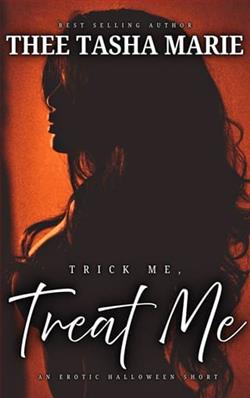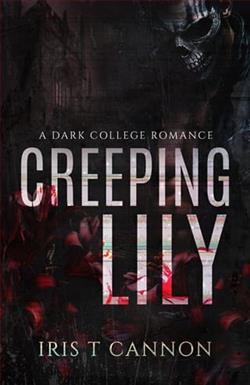Page 13 of Time for You
“Yeah, I knowthat.You’ve said that like, half a dozen times. I meant like, what’s happening? Whenever you think you’re from? Is it like ... Shakespeare times?”
“Education in the modern world must be sorely lacking, if you think Shakespeare lived in 1885.”
“Don’t blame my teachers—I just never paid attention because it wouldn’t ever be relevant for me. So I take it ... no?”
“No,” he sighed. “I am not from Shakespearean times, which would be approximately two hundred years ago. For me. Quite a bit further back for you,” he added. “The queen is Victoria? Is there still a queen?”
“No, you guys have a king now. Definitely not Victoria, but that’s also not that helpful for me. What sort of technology do you have?”
“Technology? The, uh ... telephone is recently in vogue? Did that stand the test of time?”
“It did, and it’s gonna end us all,” Daphne said darkly, but a notification on the computer that his results were in from the lab saved her from having to explain social media to a man who already probably thought she was a witch or something. She would have to look up when witch-burning ended.
She skimmed through the results, chewing on the inside of her cheek. No encephalitis—all the counts were where they were supposed to be. Just like the CT: He was perfectly healthy, except for the big, glaring thing that said he wasn’t.
Daphne scrolled down to the tests she’d ordered as a way of proving to him hecouldn’tbe from 1885 and frowned to herself. “Did you grow up ... in a cult? Or on a commune?”
“I was raised in my mother’s home in Edinburgh, in the Church of Scotland. No cults.”
“Okay, but like—you have theweirdestset of antibodies I’ve ever seen?”
“My . . . body is odd?”
“No, your—oh god, I can’t explain it. You’ve been exposed to some weird shit, I mean.”
“Such as?”
“Well, I mean, you haven’t been exposed to stuff you should have been if you were vaccinated, like rubella and polio. We usually see that in people who grew up off the grid, or with parents who hate vaccines.”
“I don’t follow.”
“I didn’t think you would,” Daphne admitted. “But you have measles antibodies, so you’ve had that?”
“When I was eight. Four children in my neighborhood died that winter.”
“Oh. Sorry,” Daphne said again, and Henry motioned for her to continue. “No chicken pox immunity either, and—” She stopped and read the final line of the report to herself four times. “Shit,” she swore, and lurched off the rolling stool near the computer. She crossed the room in two strides and grabbed his arm, a stupid, irrelevant voice in her brain noting that it wasa very nice forearm, all things considered, and scanned for any telltale bumps. The skin was smooth and unmarred, but she grabbed his face and tilted it toward the light, looking behind his ear, under his jaw, anywhere it might be hiding. She’d seen it only in pictures, but it wasn’t exactly a subtle disease.
“Is there a reason you’re mauling me?” he asked, and Daphne let him go, her heart still racing.
“You’ve been exposed to goddamnsmallpox?” That had been her ace in the hole, the test that she was going to use to definitively prove to him he wasn’t from the past. They’d stopped vaccinating for smallpox in the US sometime around when her parents had been born, and it was declared completely eradicated shortly after that. No one born in the last few decades of the twentieth century, or the entirety of the twenty-first, had ever been exposed. It was next to impossible for anyone under the age of fifty from anywhere in the world to have smallpox antibodies.
But Henry did.
“I don’t have it, if that’s what you mean.” He straightened the collar of the hospital gown with as much dignity as someone in one of those could.
“But you’ve been exposed. Which is literally impossible, unless you’ve been vaccinated.”
“You mean inoculated?” Henry asked conversationally. “Of course I have. You haven’t? You have multiple machines that see inside our bodies, but you just let people die of smallpox? How cruel is this century?”
“No, we don’t—we don’t have smallpox anymore. No one does. It’s gone. We eradicated it a long time ago. Wait, they had vaccines back then? In 1885?”
“Again, I’m assuming you mean inoculations, and yes, we have those. For smallpox, at least, although I gather from your tone you have others.” Daphne pulled out her phone and did a quick search, and—holy shit, Britain had had mandatory smallpox vaccines starting in the 1840s.
Henry Frederick MacDonald was telling the truth.
He was actually, literally, truly, from the past.
Chapter Six















